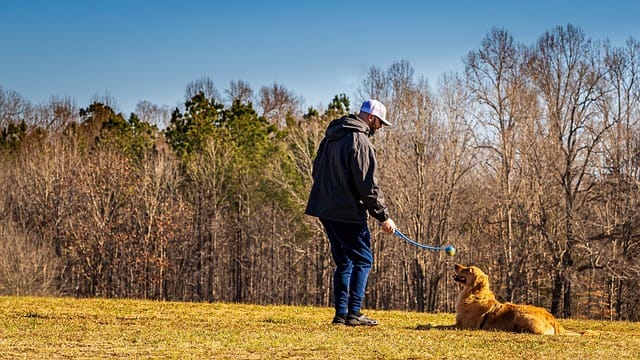Potty training is essential to dog ownership, ensuring a harmonious bond between you and your furry pal. Whether training a pup or an older dog, the process requires patience, consistency, and the right techniques. Explore Dog Care Essentials at Knine2Five and other sites if you want a worthwhile experience as a dog owner. While puppies are generally more adaptable, adult dogs can learn with proper guidance. Here are effective strategies to make potty training successful for dogs of any age.
Understanding Your Dog’s Needs
The foundation of successful potty training lies in understanding your dog’s routine and behavior. Puppies need to relieve themselves about 1-2 hours after meals, upon waking, and after playtime. Adult dogs may have better bladder control, but their specific needs will depend on their health, diet, and previous habits. Spot the signs that your canine needs to go out. These may include sniffing, circling, whining, or pacing. Prompt action when these signs appear helps reinforce the desired behavior.
Establishing a Consistent Routine
Consistency is the cornerstone of potty training. Start by setting a regular feeding schedule, as a predictable eating routine often leads to predictable bathroom habits. Take your dog outside simultaneously daily, such as after meals, naps, and play sessions. Select a designated potty spot in your yard or near your home. This consistency helps your dog associate the area with the act of relieving themselves. Always use the same route and spot, especially in the early stages of training, to reinforce the habit.

Using Positive Reinforcement
Dogs thrive on positive reinforcement, making praise and rewards vital for potty training success. When your dog uses the correct spot, immediately praise them enthusiastically and offer a treat. This creates a strong association between the desired behavior and positive outcomes. Avoid punishment for accidents, as this can lead to fear and confusion. Instead, clean up accidents thoroughly to remove any lingering odors that may encourage your dog to use the same spot again. Use enzymatic cleaners designed for pet messes to neutralize the scent completely.
Crate Training as a Tool
Crate training is a powerful tool for potty training, especially for puppies. Dogs naturally avoid soiling their sleeping area, so a properly sized crate encourages them to hold their bladder until they’re let outside. Ensure the crate is comfortable and not too large, as excessive space may lead to accidents in one corner. Introduce the crate gradually, making it a positive and secure space for your dog. Take your dog outside after releasing them from the crate to reinforce the routine.
Handling Nighttime Potty Needs
Nighttime potty training requires particular attention, especially for young puppies. Limit food and water intake a few hours before bedtime, and take your dog out before settling in for the night. Set an alarm midway through the night to take your puppy out if they cannot hold their bladder overnight. As your puppy grows, they will naturally develop better bladder control, reducing the need for nighttime outings.
Training Adult Dogs
Potty training an adult dog may require undoing previous habits, but it is achievable. Begin with the same principles as for puppies: a consistent routine, a designated potty area, and positive reinforcement. If your adult dog has accidents indoors, rule out medical cases such as urinary tract infections or incontinence by consulting your veterinarian. Retrain them as if they were a puppy, being patient as they adjust to the new expectations.
Dealing with Accidents
Accidents are a natural part of the training process and should be treated as opportunities to improve your approach. Avoid scolding your dog, as this can lead to anxiety and hinder progress. Instead, focus on identifying the reason for the accident, such as an inconsistent schedule or unclear signals. Adjust your strategy to prevent future mishaps.
Conclusion
Potty training, whether for a puppy or an adult dog, is a rewarding journey that requires time, consistency, and positive reinforcement. Understanding your dog’s needs, establishing a routine, and celebrating their successes can build a strong foundation for a lifetime of good habits. With patience and the right techniques, potty training will strengthen your relationship with your canine and create a clean, stress-free living environment.

